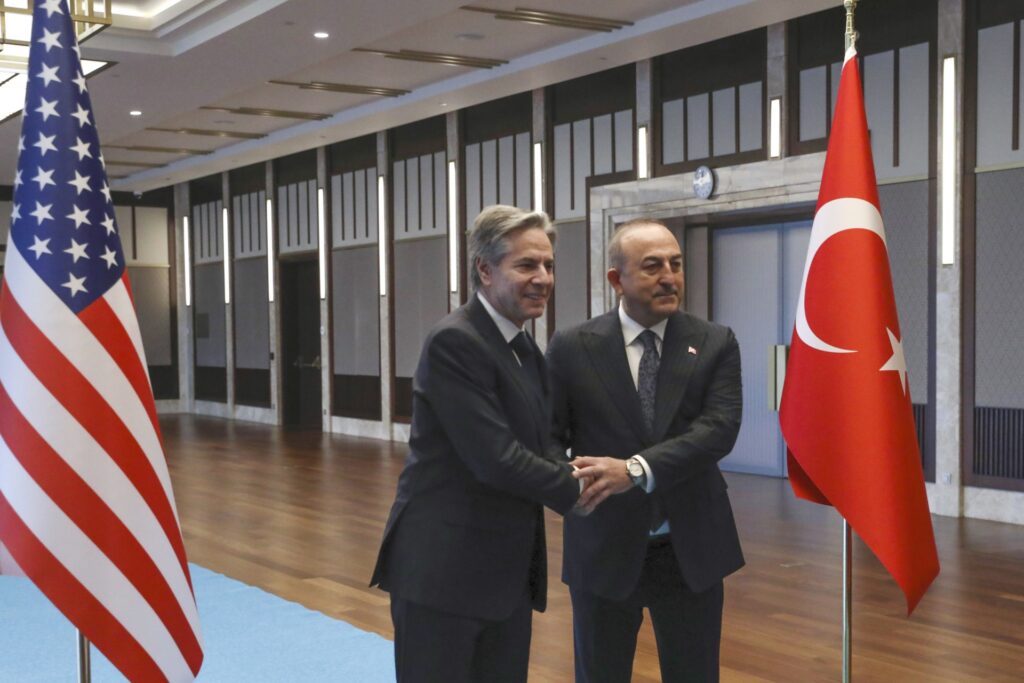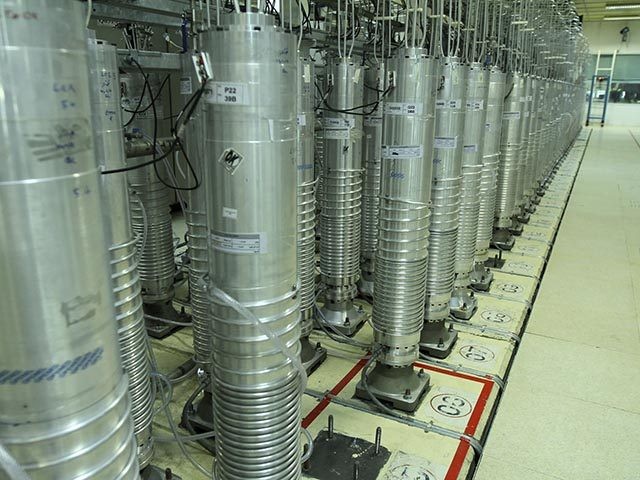The International Atomic Energy Agency (IAEA) has reportedly discovered traces of uranium enriched to 84 percent purity in Iran, a report claimed on Sunday, just below the 90-percent threshold needed to construct an atomic bomb. Iranian officials denied the report and insisted they had “not made any attempt to enrich above 60%.”
The 84 percent discovery was disclosed to Bloomberg News on Sunday by two unnamed “senior diplomats.”
One of the diplomats said Iran has not submitted the necessary paperwork to the IAEA to enrich uranium above 60 percent, a level that is already considered dangerously high by nuclear weapons watchdogs.
The other noted that even if the 84 percent enriched material discovered by IAEA inspector was created accidentally, perhaps due to technical difficulties with centrifuges, it still “underscores the danger of Iran’s decision to produce highly enriched uranium.”
“Inspectors need to determine whether Iran intentionally produced the material, or whether the concentration was an unintended accumulation within the network of pipes connecting the hundreds of fast-spinning centrifuges used to separate the isotopes. It’s the second time this month that monitors have detected suspicious enrichment-related activities,” Bloomberg noted.
U.S. Secretary of State Antony Blinken was asked about the Bloomberg report at a joint press conference in Ankara with Turkish Foreign Minister Mevlut Cavusoglu.

U.S. Secretary of State Antony Blinken, left, shakes hands with Turkish Foreign Minister Mevlut Cavusoglu before their meeting in Ankara, Turkey, Monday, February 20, 2023. (AP Photo/Burhan Ozbilici)
“Yes, I’ve seen those reports,” Blinken said. “We are in close contact with the IAEA, as well as with our partners — the E3 partners — in Europe. We’re working to get more information, and when we do, I’ll have more to say. But, of course, this would be a very serious matter.”
The IAEA acknowledged the report on Sunday, but would neither confirm nor deny it, saying only that the agency is discussing the findings of its latest investigation with the Iranian government:
Iranian officials angrily denied the uranium enrichment allegations. An Iranian Foreign Ministry spokesman questioned the “professional conduct” of the IAEA for making the allegations, which would seem to confirm the account given by Bloomberg’s sources.
Behrouz Kamalvandi, a spokesman for the Atomic Energy Organization of Iran, said in a state media interview that Bloomberg’s report was “a smear and a distortion of the facts.”
“The existence of uranium particles above 60% does not mean the same thing as enrichment above 60%,” Kamalvandi said, leaning toward the theory of inadvertent production.
“So far, we have not made any attempt to enrich above 60%. The presence of particles above 60% enrichment does not mean production with an enrichment above 60%,” Kamalvandi insisted on Monday.
Under the terms of the nuclear deal Iran made with former President Barack Obama in 2015, the Joint Comprehensive Plan of Action (JCPOA), Iran was not supposed to enrich uranium beyond 3.67 percent purity until after 2030.
Iran dramatically stepped up enrichment after former President Donald Trump withdrew the United States from the JCPOA in 2019, soaring past several increasingly alarming thresholds with a speed that suggested the Obama nuclear deal was not much of an obstacle to its nuclear ambitions. Even 60 percent enrichment is dangerously close to weapons-grade and far beyond the level Iran needs for any peaceful purpose.
“We are in close contact with our partners following reports that Iran may have enriched uranium to levels over 80%. If confirmed, this would be an unprecedented and extremely grave development,” a senior European diplomat told the Wall Street Journal (WSJ) on Sunday.
“The news comes after the IAEA reported in early February that Iran had conducted nuclear work that wasn’t reported to it at the country’s heavily fortified Fordow underground enrichment facility. At the time, two Western diplomats said they believed that work involved speeding up the production of highly enriched uranium and experimenting with ways they could produce weapons-grade material,” the WSJ noted.

COMMENTS
Please let us know if you're having issues with commenting.